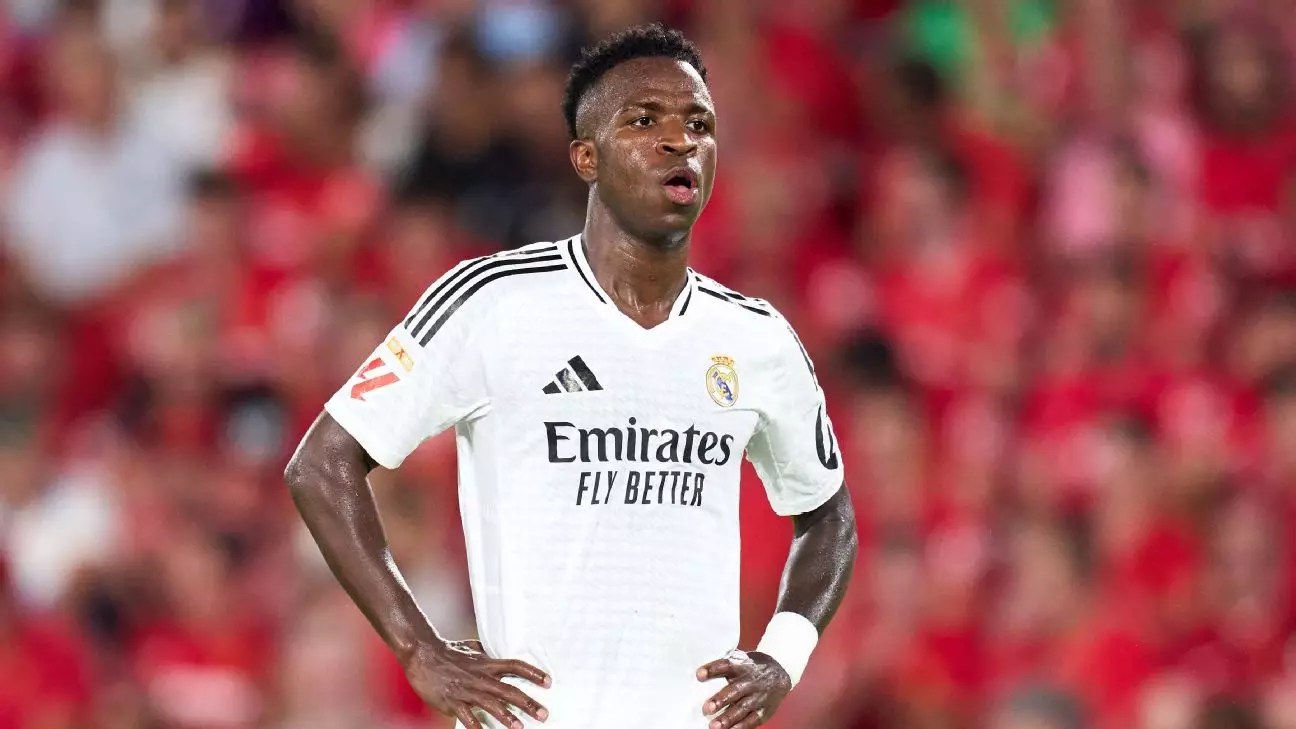In a poignant reminder of the challenges still faced in sports, a Mallorca fan has been dealt a 12-month suspended prison sentence for racially abusing two prominent football players, Vinícius Júnior of Real Madrid and Samuel Chukwueze of Villarreal. This incident occurred during two separate league matches, one in February 2023 and the other two weeks later. Such episodes of racism highlight a disturbing trend that has plagued football, forcing clubs, leagues, and authorities to confront these issues head-on.
The legal repercussions faced by the individual in question reflect a concerted effort to tackle racism within the sport. The Mallorca court’s decision included not only the suspended prison term but also a three-year ban from attending any football match in Spain. By imposing penalties that directly affect a fan’s ability to engage with the sport, authorities are sending a clear message: racism will no longer be tolerated in football or society at large. The defendant’s remorse, expressed through a letter to Vinícius, coupled with his participation in an equality and anti-discrimination program, illustrates a shift towards rehabilitation rather than mere punishment.
LaLiga, alongside prominent clubs like Real Madrid and Villarreal, has taken a proactive stance against racism. Their decision to pursue legal action signifies that football organizations are no longer passive spectators in the fight against racial discrimination. Instead, they are actively involved as private prosecutors in cases that directly impact their players and the integrity of the sport. Real Madrid’s ongoing commitment to uphold the values of the club and eliminate racism underscores the importance of institutional support in creating a more inclusive environment.
Vinícius Júnior has emerged as a leading voice in the battle against racism in football, consistently using his platform to draw attention to the issue. His emotional press conferences and public statements have resonated deeply, as he candidly spoke about the racial abuse he has endured since joining Madrid. His courage to confront these traumas and advocate for change represents a larger movement within the sport, challenging long-standing norms and calling for accountability.
The legal outcomes of this case, along with the suspension handed down to a minor for racially insulting Aurélien Tchouaméni, signal a broader commitment to eradicating racism from football. Such initiatives—coupled with educational programs for offenders—suggest a growing recognition of the need to reform societal attitudes towards race. Socio-educational activities introduced for young offenders can serve as pivotal opportunities for transformation, moving beyond punitive reactions to cultivate understanding and empathy.
While the case of the Mallorca fan is a step toward justice, the road to eradicating racism in football is long and fraught with challenges. It requires concerted effort from fans, clubs, players, and governing bodies alike. The persistent racism faced by players like Vinícius Júnior serves as a stark reminder that a concerted and continuous fight against prejudice is essential for fostering an environment where all athletes can thrive, unencumbered by the shadows of bigotry. The time for change is not just now but must continue to evolve and intensify in the coming years.


Leave a Reply